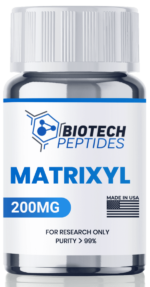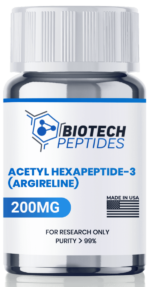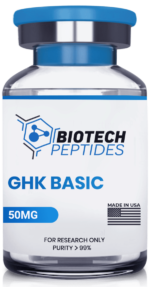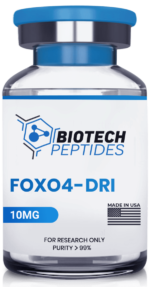Are you looking for a way to turn back the clock on aging? Ready to punch aging in the face? Peptide therapy might just be your secret weapon!
Peptides are short chains of amino acids, the building blocks of proteins, that play a vital role in many bodily functions. Some peptides have been shown to have anti-aging properties, making them a popular choice among those seeking a more youthful appearance.
So whether you’re looking to reduce wrinkles, improve skin elasticity, or boost collagen production, get ready to discover the five best anti-aging peptides that can help you knock out wrinkles and unleash a more youthful you.
Key Takeaways
- Collagen peptides can help improve skin elasticity and reduce the appearance of wrinkles by promoting collagen production.
- Vitamin C and hyaluronic acid are powerful antioxidants that can help protect the skin from damage and boost hydration.
- Products like Drunk Elephant Protini Powerpeptide and copper peptides can provide additional anti-aging benefits by promoting skin cell regeneration and reducing inflammation.
Matrixyl
Matrixyl is a popular peptide complex that can be used to help reduce the appearance of fine lines and wrinkles. It works by boosting collagen and elastin production, which are essential for maintaining skin firmness and elasticity [2].
Matrixyl
Matrixyl is known as a lipopeptide – a peptide mixed with fatty acids. The active element within Matrixyl is micro-collagen – hence why it’s so effective for anti-aging.
Matrixyl can stimulate the cells of the skin to start rebuilding themselves, which includes wrinkles and skin injuries.
Matrixyl has thus been linked to a more youthful look and studies suggest it will reduce wrinkles while also completely eliminating the smaller ones.
Palmitoyl Tetrapeptide-7
Palmitoyl Tetrapeptide-7 is a peptide that is commonly used in anti-aging skincare products due to its ability to produce collagen. By increasing collagen production, Palmitoyl Pentapeptide-4 can improve skin texture and tone, resulting in more youthful-looking, firmer skin [3].
Reviews of Palmitoyl Tetrapeptide-7 are generally positive, with many people reporting improved skin texture and tone after using peptide cream containing this ingredient.
Palmitoyl Tetrapeptide-7
Palmitoyl tetrapeptide-7 is a synthetic peptide composed of the amino acids glutamine, glycine, arginine, and proline.
Palmitoyl Tetrapeptide-7 was originally developed to improve skin tissue as well as nervous tissue. It might even reduce the damage done to the skin by daily living.
Overall, Peptide users have found that Palmitoyl Tetrapeptide-7 reported the appearance of fine lines and wrinkles improved.
Acetyl Hexapeptide-3
Acetyl Hexapeptide-3, also known as Argireline, is a peptide that is commonly referred to as “Botox in a bottle.” This peptide works by relaxing facial muscles, which can help reduce the appearance of fine lines and wrinkles [4].
In addition to its wrinkle-reducing properties, Acetyl Hexapeptide-3 can also help plump up the skin, enhance skin texture, and smooth out sagging skin. It is commonly found in peptide serums and other anti-aging skincare products.
Acetyl Hexapeptide-3
Acetyl Hexapeptide-3 or Argireline is a synthetic anti-aging peptide that can help with skin health, and while it is synthetic it is naturally derived from proteins.
Studies suggest that it may reduce wrinkles by up to 27%, which is why many cosmetic companies already use this solution in their creams and treatments.
Essentially, Argireline will not only be able to reduce wrinkles but it’ll slow the process of them forming in the first place as well.
Copper Peptides
Copper peptides (such as GHK-Cu) are synthetic peptides that can be found in many skin care products. These peptides have been shown to promote collagen production, reduce inflammation, and improve skin hydration [5].
Copper peptides can help smooth the skin and reduce the appearance of fine lines and wrinkles. They are also known for their anti-inflammatory properties, which can help calm irritated skin [5].
Copper Peptides
Copper Peptides are the unsung hero of health – for the entire body. They can improve cardiovascular health as well as skin health. This is why GHK-Cu is used in anti-aging, anti-wrinkle, after-sun, skin renewal, skin moisturizer, and hair growth-stimulating products.
GHK can stimulate the production of collagen as well as decorin, which makes skin thicker, healthier, and far less likely to pick up blemishes or wrinkles.
GHK could also improve your hair health.
FOXO4-DRI
FOXO4-DRI is a peptide that has gained attention in recent years for its potential anti-aging benefits.
This peptide works by binding to a protein called FOXO4, which helps regulate the expression of genes that control cell growth and survival. By binding to FOXO4, the peptide can boost collagen and elastin levels, two proteins that are essential for maintaining skin elasticity and firmness [6].
FOXO4-DRI
By inhibiting FOXO4 from binding to p53 it can increase the elimination of senescent cells, improve organ function, and make your tissue appear ‘younger’.
The main mechanism of action is its ability to help you ‘get rid of’ dead cells more effectively. This will leave your skin looking better, but it also boosts collagen and elastin levels.
Collagen and elastin will make your skin appear fuller, fresher, and a whole lot healthier. Reviews claim the peptide is quite exceptional at what it does even when taking the price into account.
What are Peptides?
Peptides are essential building blocks in our bodies that have many different functions, including supporting healthy skin. When it comes to skincare, certain peptides have been found to help stimulate collagen production, which is essential for maintaining skin elasticity and reducing the appearance of wrinkles.
For example, vitamin C and hyaluronic acid are both types of peptides that are commonly used in skincare products.
- Vitamin C helps brighten and even out skin tone
- Hyaluronic acid can help moisturize and plump the skin, and
- When used together with other peptides, these ingredients can help rejuvenate the skin and give it a more youthful appearance.
How does Peptide Therapy reverse aging?
Peptide therapy has been gaining popularity in recent years as an anti-aging treatment. Wondering how these peptides really work? Well, check these out:
- One of the ways this works is by supporting the skin barrier. As we age, our skin barrier becomes weaker, which can lead to dryness, irritation, and wrinkles. By using certain types of peptides, we can help strengthen the skin barrier and keep it functioning properly.
- Enzyme inhibitor peptides work by blocking the activity of certain enzymes that can break down collagen and elastin in the skin. By inhibiting these enzymes, they can help support collagen and elastin levels, leading to smoother, more youthful-looking skin [6].
- Human growth hormone (HGH) peptides stimulate cell growth and regeneration. As we age, our levels of HGH naturally decline, which can lead to a variety of age-related changes, including thinning skin and reduced muscle mass. By supplementing with HGH peptides, we can help support our body’s natural regeneration processes and maintain smoother, more youthful-looking skin.
Benefits of Peptide Therapy
- Increased collagen production: Collagen is a protein that gives skin its elasticity and firmness. Peptides can stimulate collagen production, which can help reduce the appearance of fine lines and wrinkles, and give skin a more youthful, supple appearance.
- Improved skin texture: Peptides can help improve skin texture by promoting the growth of new skin cells and increasing skin thickness. This can lead to smoother, more even-looking skin.
- Enhanced skin hydration: Some peptides, such as hyaluronic acid, can help attract and retain moisture in the skin, which can improve skin hydration and give it a plumper, more radiant appearance.
- Reduced inflammation: Certain peptides have anti-inflammatory properties that can help reduce inflammation in the skin. Inflammation is a major contributor to skin aging, so reducing inflammation can help slow down the aging process.
- Improved wound healing: Peptides can also help improve wound healing by promoting the growth of new blood vessels and skin cells. This can help reduce the appearance of scars and other signs of aging.
Side Effects of Peptide Therapy
- Allergic reactions: Some people may be allergic to certain types of peptides, which can cause a range of symptoms such as itching, swelling, and difficulty breathing.
- Skin irritation: Some peptides, especially those that are applied topically, may cause skin irritation, redness, or flaking. This can be a sign of an allergic reaction or simply a result of the skin adjusting to the new treatment.
- Imbalance of hormones: Peptides can affect the body’s hormone levels, which can lead to side effects such as mood changes, headaches, and changes in appetite or sleep patterns.
Results of Drunk Elephant Protini Powerpeptide
“I’ve been a devout DE user for a few months now. Expensive line but highly effective. Skin slays now (compared to its dull, breakout prone condition before).
To answer the question, YES Protini does what it claims. I saw results after first use. My skin looked healthy, clean, glowy but not shiny. Many thanks to the Sephorians who allowed me to take 3 tiny plastic sample jars of the stuff home with me!”
Reddit User OnyxInDisguise
Wrapping it up
In conclusion, incorporating anti-aging peptides into your skincare routine can be a game-changer. Say goodbye to wrinkles and hello to a more youthful-looking you!
People Also Ask
Do peptides really work for anti aging?
The breakdown of collagen in the skin due to sun damage and stress can result in thinning, sagging, and fine lines. However, incorporating age-defying peptides in your skincare routine can help prevent or even reverse these signs of aging.
What not to mix with anti aging peptides?
Avoid mixing glycolic acid as the mixture is not as effective, and the peptides are susceptible to hydrolysis when exposed to these acids.
Should I moisturize after using peptides?
Yes, it is recommended to moisturize after using peptides. Moisturizing after using peptides can help lock in moisture, keep the skin hydrated and nourished, and enhance the overall benefits of the peptides.
Is it better to use peptides at night or morning?
Lucky for you there are no rules as to when to apply these peptides! You may apply peptides any time of the day, however, being consistent and applying on the same time is recommended.
References
Al-Atif H. Collagen Supplements for Aging and Wrinkles: A Paradigm Shift in the Fields of Dermatology and Cosmetics. Dermatol Pract Concept. 2022 Jan 1;12(1):e2022018. doi: 10.5826/dpc.1201a18. PMID: 35223163; PMCID: PMC8824545. https://www.ncbi.nlm.nih.gov/pmc/articles/PMC8824545/
Aldag C, Nogueira Teixeira D, Leventhal PS. Skin rejuvenation using cosmetic products containing growth factors, cytokines, and matrikines: a review of the literature. Clin Cosmet Investig Dermatol. 2016 Nov 9;9:411-419. doi: 10.2147/CCID.S116158. PMID: 27877059; PMCID: PMC5108505. https://www.ncbi.nlm.nih.gov/pmc/articles/PMC9301720/
Aruan RR, Hutabarat H, Widodo AA, Firdiyono MTCC, Wirawanty C, Fransiska L. Double-blind, Randomized Trial on the Effectiveness of Acetylhexapeptide-3 Cream and Palmitoyl Pentapeptide-4 Cream for Crow’s Feet. J Clin Aesthet Dermatol. 2023 Feb;16(2):37-43. PMID: 36909866; PMCID: PMC10005804. https://pubmed.ncbi.nlm.nih.gov/36909866/
Lim SH, Sun Y, Thiruvallur Madanagopal T, Rosa V, Kang L. Enhanced Skin Permeation of Anti-wrinkle Peptides via Molecular Modification. Sci Rep. 2018 Jan 25;8(1):1596. doi: 10.1038/s41598-017-18454-z. Erratum in: Sci Rep. 2018 Apr 20;8(1):6500. PMID: 29371611; PMCID: PMC5785486. https://www.ncbi.nlm.nih.gov/pmc/articles/PMC5785486/
Pickart L, Margolina A. Regenerative and Protective Actions of the GHK-Cu Peptide in the Light of the New Gene Data. Int J Mol Sci. 2018 Jul 7;19(7):1987. doi: 10.3390/ijms19071987. PMID: 29986520; PMCID: PMC6073405. https://www.ncbi.nlm.nih.gov/pmc/articles/PMC6073405/
Zhang C, Xie Y, Chen H, Lv L, Yao J, Zhang M, Xia K, Feng X, Li Y, Liang X, Sun X, Deng C, Liu G. FOXO4-DRI alleviates age-related testosterone secretion insufficiency by targeting senescent Leydig cells in aged mice. Aging (Albany NY). 2020 Jan 20;12(2):1272-1284. doi: 10.18632/aging.102682. Epub 2020 Jan 20. PMID: 31959736; PMCID: PMC7053614. https://www.ncbi.nlm.nih.gov/pmc/articles/PMC7053614/
- 5 Best Peptides for Hair Growth – For Regrowth & Hair Loss - May 19, 2023
- 5 Best Peptides for Muscle Growth – Dosages and Real-Life Results - May 15, 2023
- 5 Best Peptides for Anti Aging & Skin Health - May 9, 2023













